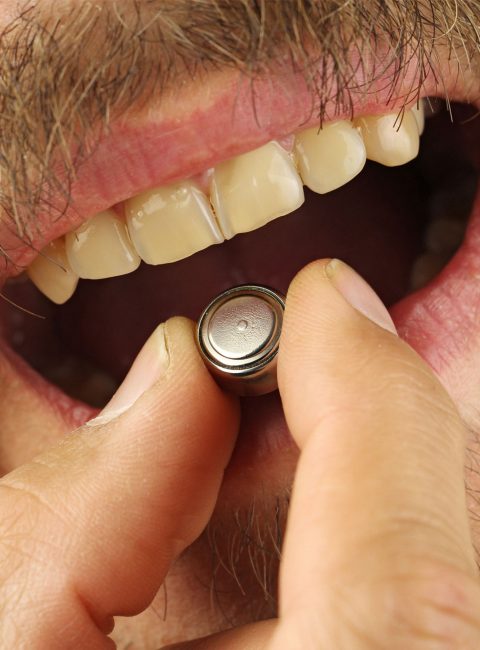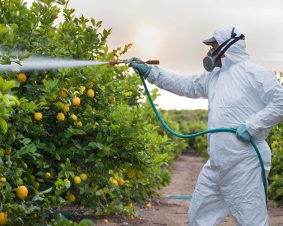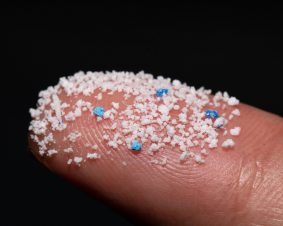 >
Spotlight May 2023: Dual energy – edible batteries
>
Spotlight May 2023: Dual energy – edible batteries
An Italian research group reports on edible batteries that supply electric current and can be digested as food, thus providing energy a second time. What sounds funny at first has a serious background, because in medicine, power sources are needed that could be transported through the digestive tract and possibly remain in the body unintentionally, e.g., for swallowable mini-cameras that could be used in gastroscopies and colonoscopies. If the battery materials are then digestible, there will be no problematic effects from the battery if it does not pass through the body quickly enough.
The battery presented is composed of dietary and nutritional supplements, and since all components are either digestible or pass through the body unchanged, they could actually be eaten. The authors did test the battery’s functionality, so it does provide electricity, but they did not eat their battery because the battery case was too large and not constructed of digestible materials, so more research is needed here.
Original publication:
Ilic, I. K., Galli, V., Lamanna, L., Cataldi, P., Pasquale, L., Annese, V. F., Athanassiou, A., Caironi, M., An Edible Rechargeable Battery. Adv. Mater. 2023, 2211400.

Weitere Spotlights
Spotlight October 2021: Nanopesticides – a proposal for a risk assessment framework
The application of so-called “nanopesticides” (see also cross-sectional text Nanomaterials in plant protection products) is said to have two basic advantages: a smaller amount of pesticide is needed for the same agricultural area and the efficacy is improved. This is necessary to grow enough food for a still growing world population. However, this could also […]
Read moreSpotlight August 2020: The nanoGRAVUR Grouping approach
In August, we would like to present a paper of the German BMBF project nanoGRAVUR. nanoGRAVUR dealt from 2015-2018 with the grouping of nanostructured materials with regard to occupational safety, consumer and environmental protection and risk mitigation. The approach is now described by the project partners in this paper.Due to the variety of synthetic nanomaterials and the numerous modifications (differences in size, shape, chemical composition and surface functionalization), the effort required to investigate effects and behaviour within the framework of regulatory requirements is…
Read moreSpotlight January 2021: Nanoplastics challenge – How to improve tracking of nanopolystyrene distribution in the environment.
In January, we present a paper published in the Nature Journal communications materials. The article focuses on the development of a new detection method of nanopolystyrene. The method not only makes it possible to detect nanoplastics in the environment for the first time, but also to determine their accumulation in plants and animals. Nanoplastics, which […]
Read moreSpotlight May 2022: Nano-ghosts” – Risk assessment of submicron-sized particles in food biased towards fictional “nano”
The European Commission has issued a ban on the colorant titanium dioxide in food. Titanium dioxide, which provides a nice shine and bright white color, can potentially damage genetic material. We chose a review article from 2022 for the May 2022 Spotlight that addresses the risk assessment of food-grade titanium dioxide (E171) and the resulting […]
Read more


